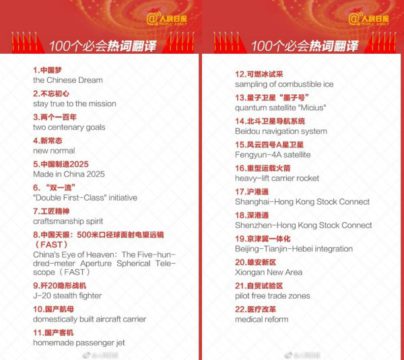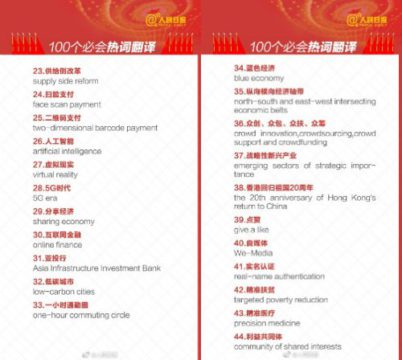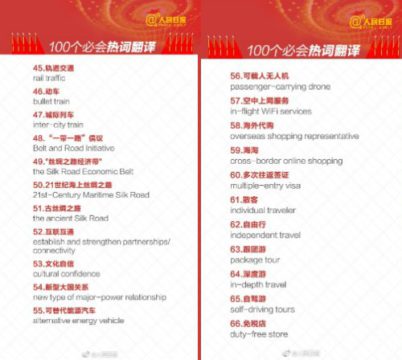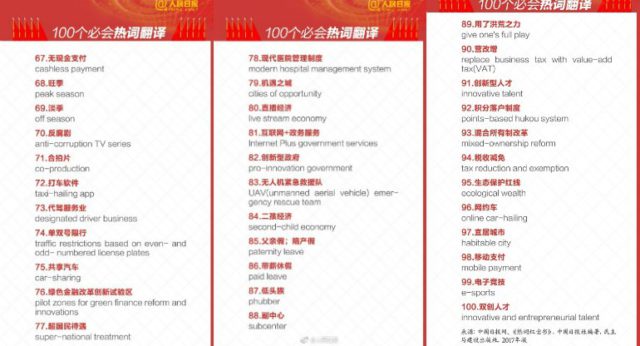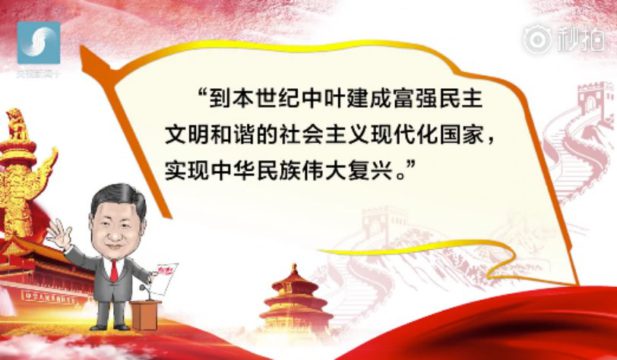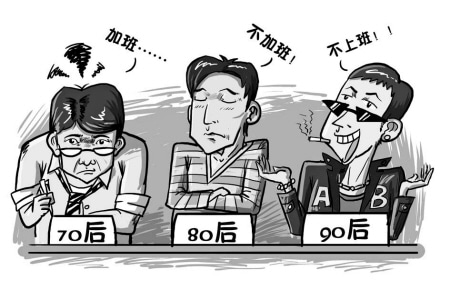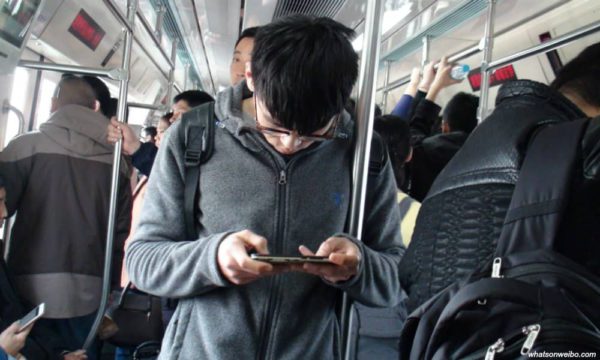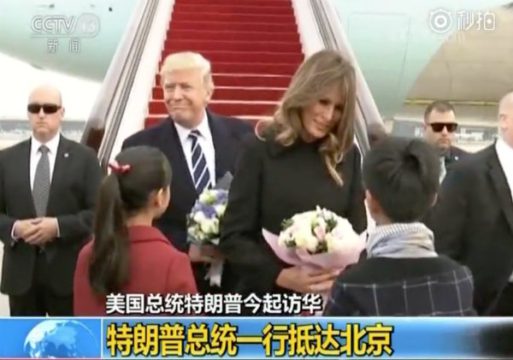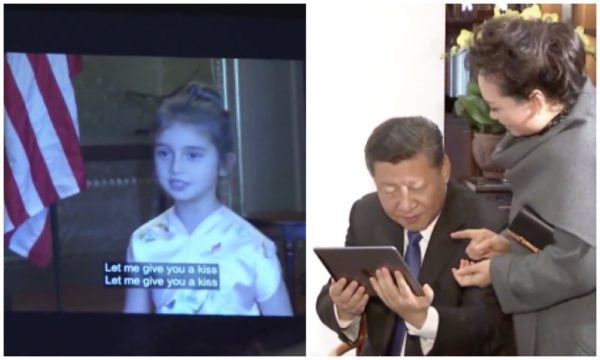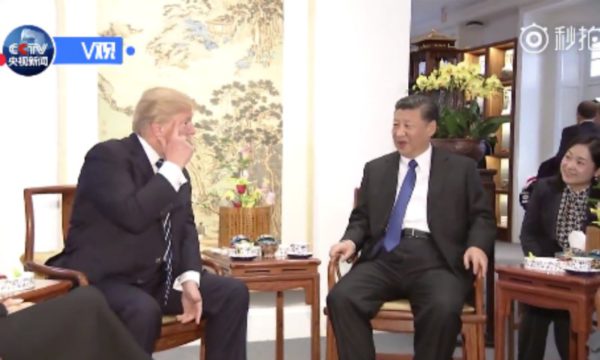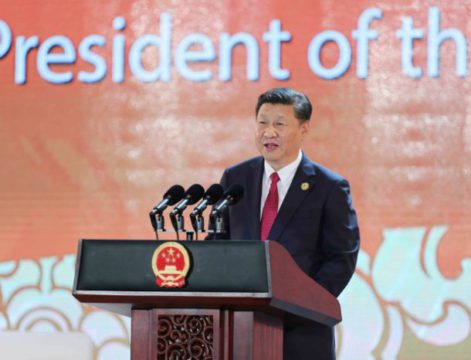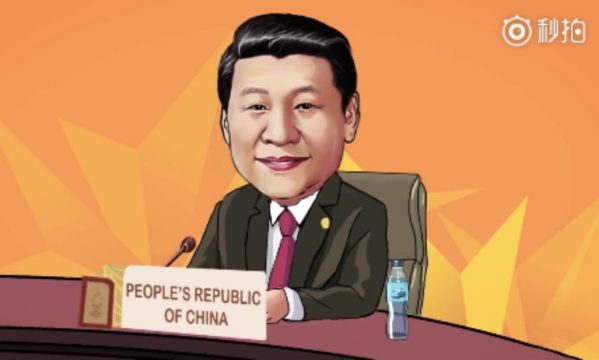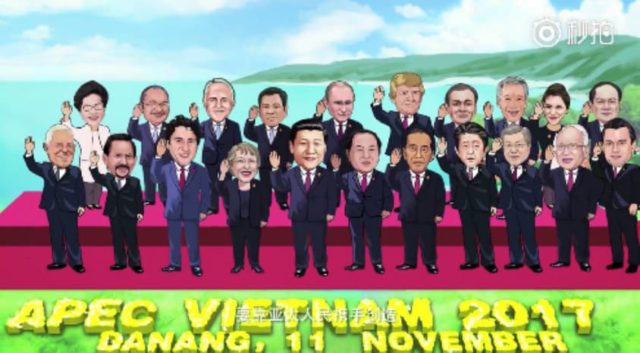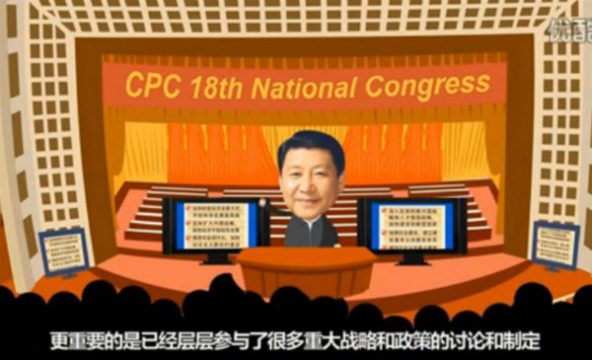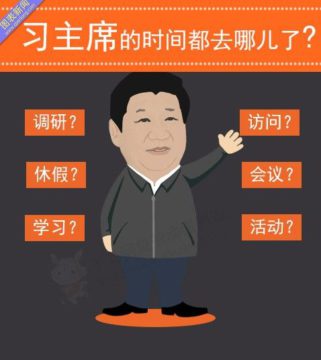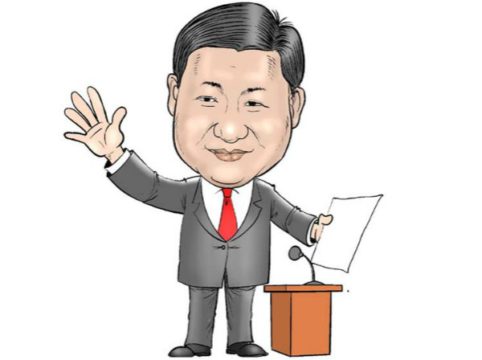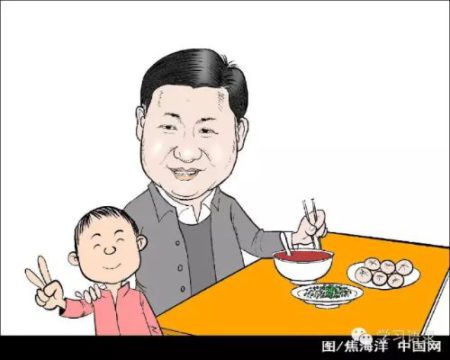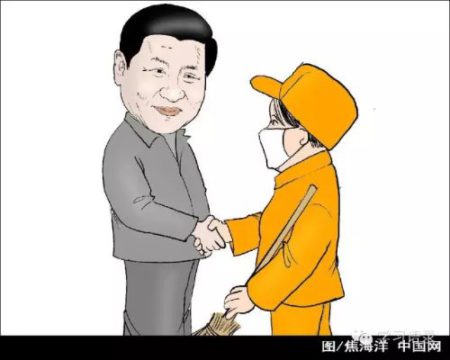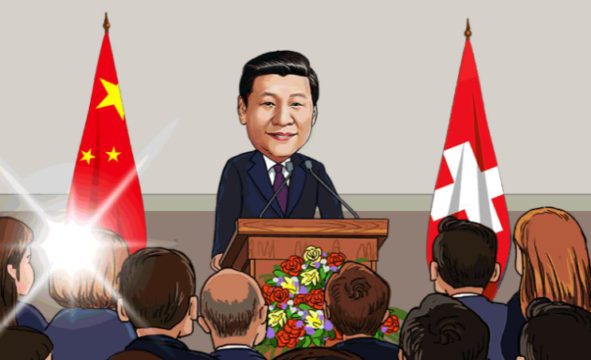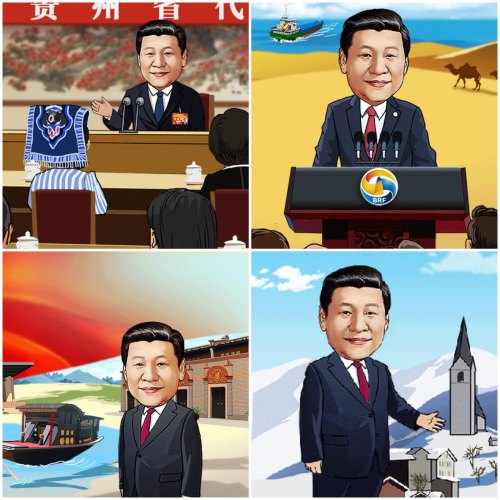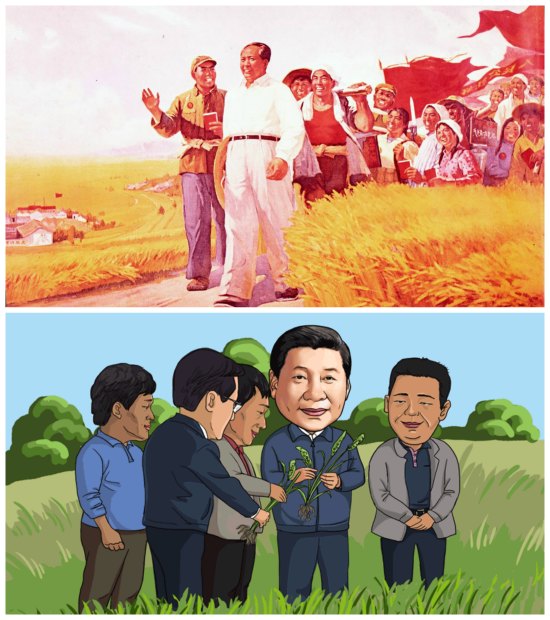Chinese netizen ‘@DoubleTrouble’ (@二捣蛋), a Guangzhou stay-at-home mother of two kids, recently posted about her desire to take “an absence of leave” (请假) from her life as a mum and travel by herself during the Chinese National Holiday.
The woman shared her grievances on WeChat about being severely criticized by her husband and mother-in-law for wanting some time for herself during an 8-day vacation after taking on the sole care of her two children non-stop for years.
The unhappy mother’s story, which was posted some days before the start of China’s national holiday, was picked up by Chinese media and went viral. It triggered heated discussions on the role of China’s stay-at-home mothers within the family.
A FULL-TIME MOTHER’S DILEMMA
“I raised the subject of wanting to go away for a while. But I couldn’t even finish speaking before my mother-in-law said: How dare you think of things like this as a mother?!”
The original text, which was posted by the woman on a WeChat forum for Guangzhou mothers (gzmama.com), is as follows:
“The past two days I’ve had a falling out with my family members. I wanted to use the National Holiday to travel somewhere, but my husband and mother-in-law strongly opposed. Now, there is all this turmoil because of this, with them criticizing me for being selfish. They also say I am irresponsible and that I am an unfit mother. I feel really low.
The situation is that I have two children, a 5-year-old and a 2-year-old, both raised by me. Although my parents-in-law are also in Guangzhou, they’ve never helped me out at all. Even when one child gets sick, it is me who has to take both the children to the hospital.
I’ve been married to my husband for six/seven years now. After we got married, I resigned from my job to become a full-time mother. We did not hire a nanny and I took on the care of the two kids by myself. My husband is very busy, and couldn’t help out either.
The last couple of years have tired me out. All mothers will know what I mean, even if they don’t say it. For this year’s [national] holiday, my husband also got a few days off, which is very rare, so I finally wanted to seize this opportunity to go out for a while, and let my mother-in-law help out for a bit to take care of the children.
A few days ago, we were all having dinner together, when I raised the subject of wanting to go away for a while. But I couldn’t even finish speaking when my mother-in-law said: “How dare you think of things like this as a mother?!” My husband also strongly opposed to me leaving the house. My father-in-law said nothing; he didn’t oppose nor approve.
My husband and my mother-in-law at the dinner table took turns in telling me how selfish I am, and how irresponsible I am, and I could not help but quarrel with them.
Now the family relations have gone sour, and my husband and I have not spoken for few days, I also haven’t gone to see my mother-in-law.
Am I really being selfish? The two children are already older now. The little one does not get breastfed anymore, and the kids get along great, they hardly ever fight.
Sigh, I do not know what to do now. Should I go anyway, regardless if they are against it or not? Or should I just forget about it it and just bitterly stay at home with the kids?”
The woman’s post received some 17,000 views and over 200 comments from other mothers on the Guangzhou forum before it was widely shared and discussed in Chinese media, receiving thousands of reactions on Weibo.
STAY-AT-HOME MOMS IN CHINA
“Once you have children, your time is no longer your own – your time must be dedicated to them.”
More than two-thirds of mothers in China work full-time. According to this report (video) by CGTN, China’s modern-day moms belong to a generation that attaches great importance on having a job – so much so that there is an alleged social stigma to staying at home full-time to raise the children.
“There are a lot of Chinese mothers who work, and this might not necessarily always be their choice,” says Roseann Lake, author of upcoming book Leftover in China: The Women Shaping the World’s Next Superpower.
Lake tells What’s on Weibo that the relatively high percentage of working mothers in China, on the one hand, can be explained through the historical background of the Cultural Revolution, which placed great importance on the full participation of women in the labor force. On the other hand, she notes, it also has a lot to do with today’s China.
“Giving the nature of China’s economy, there is a need for double-working households. And at the same time, there are also many grandparents with free time on their hands who are willing to take care of their grandchildren.”
Lake does not think there necessarily is a social stigma attached to being a full-time mom: “If the financial conditions allow it, women in China can certainly be stay-at-home moms. But then there is the expectation to take on the bulk of looking after the household.”
Nevertheless, Lake stresses, usually – despite expectations that the wife will then take on full care of the household and children – Chinese grandparents will pitch in to help take care of the children, whether the mothers like it or not.
About the case of Chinese netizen ‘@Doubletrouble’, Lake says: “There are plenty of in-laws in China who would pass judgment on something like this, saying that once you have children, your time is no longer your own and your time must be dedicated to them at all times.”
While there is pressure on both working and stay-at-home moms, there is a growing number of Chinese women who choose to fully dedicate themselves to their family life.
According to China Daily, more than 70% of post-90s young mothers are willing to be a full-time mom. By contrast, mothers from the post-80s would rather stay in the workforce; approximately 46% keep on working after becoming a mother.
ONLINE REACTIONS
“If women cannot even have this piece of freedom, then why do we get married at all?”
With the number of stay-at-home mothers on the rise in China, so are the challenges that come with being a full-time mother. The story of @DoubleTrouble shows that there are many other full-time mothers who have a similar story.
“Women have to think of themselves, they should not completely dedicate all of themselves to the family,” one woman (@潼潼囡妈咪) writes: “We need our own social space in order to have the capability to support ourselves and our children.”
“Just go!”, one person pleads: “If women cannot even have this piece of freedom, then why do we get married at all?”
Other people also point out that it is not the mom who is selfish: “If a woman becomes a mother, it doesn’t mean she has to give up on everything. There are 8 days in the National Holiday – why can’t she leave for 2 days? Can’t she have a break from working hard all year round? It’s not only her children, what’s wrong with the mother-in-law looking after them? They are the ones who are selfish and take her for a free labor force.”
There are also commenters who say that there is a big difference between being a stay-at-home mother and a ‘house slave’: “Just go and apply to be a nanny somewhere else,” one person suggests: “At least then you’ll have wages and get days off.”
“The one who has no sense of responsibility is not this mother, but her husband,” another woman writes.
“It’s not like she’s leaving for two months,” one commenter said: “If women cannot even enjoy this freedom and support after getting married and having babies, then what’s the point?”
“When I get married,” a male netizen writes: “I want my wife to take time for herself and go outside, I will watch the kids. I don’t want to see her depressed or restless.”
Despite all the support for @DoubleTrouble, and all the other mothers demanding that ‘time off’ should be normal for all stay-at-home moms, there are also some who disagree.
“When the child is 2 years old, they are too young. Wait until they go to school,” some say. Or: “Just take the children and go on a trip together with your husband, the four of you together as a family.”
THE “GREAT TRANSFORMATION”
“The grandmother does not have the duty to help out her daughter-in-law, but then she also shouldn’t expect her daughter-in-law to take care of her when she is old and sick.”
The recent account of ‘@Doubletrouble’ is not the only complaint from full-time mothers who feel the pressure of taking on the full care of their children and not getting any help nor personal time. An important recurring issue is the changing role of the in-laws, who traditionally lived with their son’s family and usually have an active role in raising their grandchildren.
One woman from Fujian (@林小夕的梦) cries out on Weibo: “I am so tired, I am on the verge of collapse. It’s unbearable being a full-time mother. Don’t ask me about my mother-in-law or why she doesn’t help me out – I’d be better off without her, she doesn’t understand.”
The transformations of Chinese traditional family structures in the modern-day era have not necessarily brought about equal gender divisions in the household.
As pointed out by Harriet Evans in The Gender of Communication (2010), the focus in Chinese society has gradually shifted over the past half-century, as there is “[a] shift away from a collectivist and family-oriented ethics of personal responsibilities to an individualistic ethics of rights and self-development” (981).
This “great transformation”1 manifests itself, amongst others, in the clashes between those younger mothers who seek self-fulfillment and personal satisfaction, and those older generations who still expect them to fulfill the traditional women’s role in the domestic sphere, while they, as grandparents, now also play a much less significant role in the upbringing of their grandchildren – not just because they are detached more from the family in social terms, but also often because there is a bigger spatial distance between families.
“The grandmother does not have the duty to help out her daughter-in-law, but then she shouldn’t expect her daughter-in-law to take care of her either when she is old and sick,” a popular comment said.
Since the post has gone viral, @DoubleTrouble has not given an update about whether or not she did go on that trip. If not, at least her story has triggered some relevant discussions online.
“I just hope this post will receive enough attention so that women who want to become a full-time mother will realize the difficulties they might face,” one woman writes.
By Manya Koetse
Follow @whatsonweibo
References
Evans, Harriet. 2010. “The Gender of Communication: Changing Expectations of Mothers and Daughters in Urban China.” The China Quarterly (204): 980-1000.
1 Evans (2010) quotes Yan Yuxiang here, author of The Individualization of Chinese Society (London: Berg, 2009).
Spotted a mistake or want to add something? Please let us know in comments below or email us.
©2017 Whatsonweibo. All rights reserved. Do not reproduce our content without permission – you can contact us at info@whatsonweibo.com.
The post Under Pressure: Chinese Full-Time Mothers Demand Time Off appeared first on What's on Weibo.










